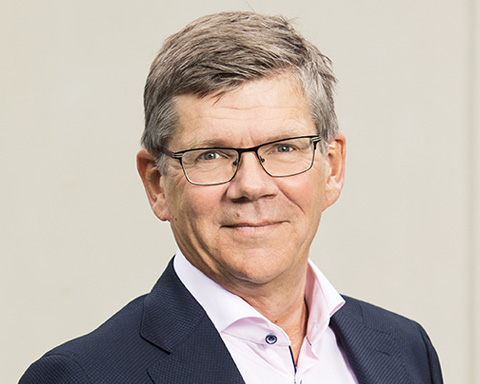WEEK 2 is a new initiative, a career week for early career researchers interested in developing their skill set and finding new career opportunities. It was kicked off at UiO today. The programme has been put together by the Faculty of Mathematics and Natural Sciences, the Faculty of Dentistry, the Natural History Museum, and the Science Library.
WEEK2 is not only a very important but also a necessary initiative. It is actually a little overdue. And this is in no way a criticism of today's organisers.
Both society and academia have changed tremendously in recent years, and the University of Oslo, as an institution, has honestly not always been able to adapt to the changes quickly enough.
Not all will end up in academia
We have not fully grasped the consequences of the massive increase in the number of doctoral students. From 297 nationally in 1988, when I defended my thesis, to 1562 in 2022. From 19% women in 1988 to 52% in 2022, with a significant increase in the proportion of international candidates. At the Faculty of Mathematics and Natural Sciences there were few doctoral students in 1988. Today? As much as 55 %.
It is obvious that we need to become better at supporting our own young researchers. Only a fraction will end up in academia. So, what are the implications for HR policies at UiO?
The need for support is also accentuated by the fact that not all doctoral students know Norwegian language and culture – factors that are highly significant both during their studies and for future careers.
In short, WEEK2 – together with respective career weeks organised by the Faculty of Educational Sciences, the Faculty of Humanities and the Faculty of Social Sciences – should serve as an inspiration for others, both at UiO and elsewhere in Norway and Europe.
Some advice based on lessons learnt
Generally, I do not like to draw upon my own experiences when writing op-eds and blogs or giving speeches and introductions. After all, it is never about me, it is about the audience I encounter in various settings.
However, I will make an exception. Based on my own experience as a young and rather uncertain researcher, I want to give our young researchers four pieces of advice – advice I wish someone had given me when I was at their age/carrier stage.
1. You are good enough
I am very glad that a session on “the imposter syndrome” is on WEKK2?s program. Doctoral students often think that they are the only ones who ever have doubted themselves and their abilities, but I can assure them: this is completely mistaken.
I remember my own doctoral depression and the nagging doubt caused by my inner critic – a doubt that follows all of us throughout our lives, even if you end up being a rector. In fact, I would be more concerned if someone had never entertained such thoughts. The important thing to know is that we are not alone in this.
Part of the challenge, I believe, is that the doctoral education is often described with one specific goal in mind: the goal of becoming a professor – of course at the University of Oslo. This is clearly not the right approach, and leads me to my second advice:
2. There is more than one heaven
Very few end up as professors at the University of Oslo. Many become researchers, but we educate with the entire workforce in mind, so a majority will tread their professional paths elsewhere.
In the Led Zeppelin song “Stairway to heaven”, it is emphasised that there is still time to change the road you are on. Do not restrict yourself to one heaven, one particular career. Instead:
3. Let the path unfold as you go
A doctoral degree is no walk in the park, but it is still something I know many look back on as one of the most exciting times in their lives.
Go head to head with complicated research questions, tackle them with passion and enthusiasm. And while doing that, envision that at the end of the tunnel, a whole range of opportunities await you. Which leads to the following advice:
4. Do not hide
Put yourself out there. Approach people at the University of Oslo and in society at large with curiosity and openness. Invite to dialogue. Make use of career-related offers, such as WEEK2, to learn techniques that help you become appropriately visible and self-confident.
.. and here comes a recommendation aimed at the supervisors:
Give the candidate realistic feedback
I know it's difficult, but it is important to explore an open dialogue that that gives the candidate the opportunity to reflect on themselves, their personal qualities, and what career opportunities may be open to them.
Listen carefully and respond carefully. Maybe some need to be gently steered away from the temptation of an academic career? Do not focus only on ?weaknesses? or ?challenges? – it is equally important to provide feedback on the candidate?s strengths. Doctoral students in general need to build their self-confidence, they need to shake off the “imposter syndrome” thinking.
Personally, I would never have received UiO?s Dissemination Award in 2011 if Yngve Vogt in Apollon had not told me that I have the ability to communicate in an understandable way.
Encouragement is vital.




